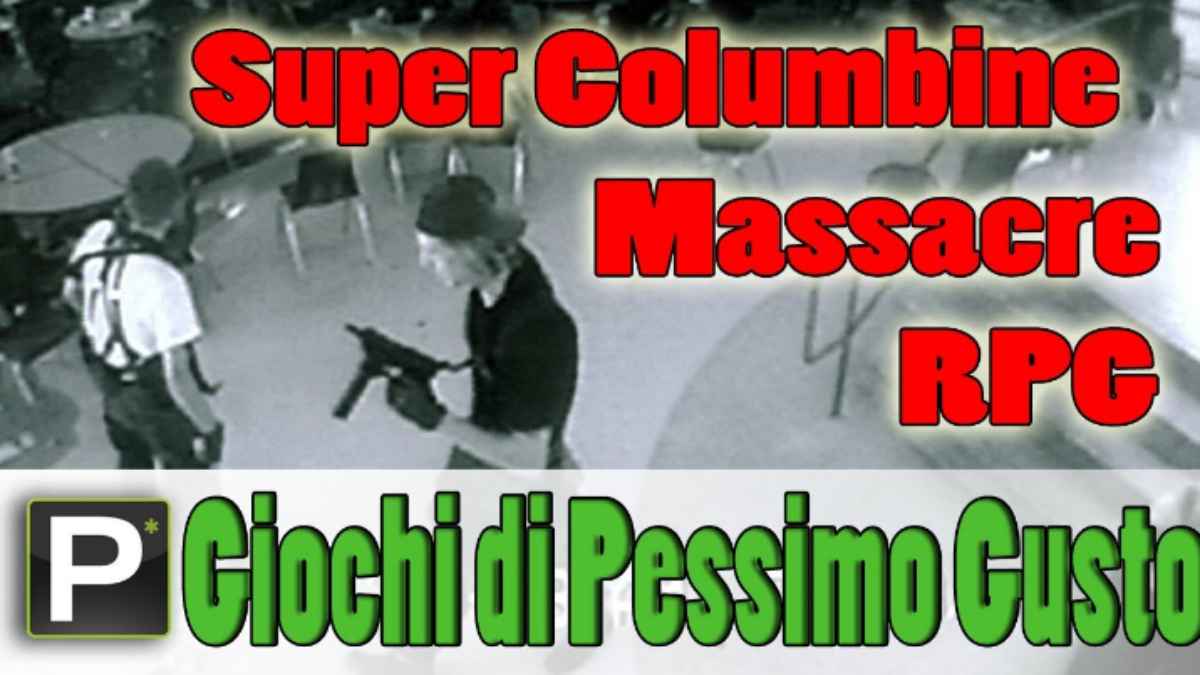Introduction
Super Columbine Massacre RPG is one of the most controversial indie games in video game history. Released in the early 2000s, this game shocked players and critics alike due to its subject matter, gameplay style, and narrative approach. But what exactly is Super Columbine Massacre RPG, and why does it generate such intense reactions? This article provides a detailed, objective analysis of the game, its context, and its impact on gaming culture. Gamers seeking to understand the game’s purpose and legacy will find valuable insights here.
What is Super Columbine Massacre RPG?
Super Columbine Massacre RPG is an indie role-playing game created by Danny Ledonne. The game recreates the tragic 1999 Columbine High School shooting through pixelated graphics and RPG gameplay. Players control two of the shooters, navigating the school environment and interacting with various characters. The game’s minimalistic design contrasts sharply with the gravity of its subject, leading to widespread debate on its intent and message.
Gameplay and Mechanics
The gameplay follows traditional RPG conventions: players move characters through different locations, talk to NPCs, and engage in combat sequences. However, the game’s objectives and narrative diverge significantly from typical RPGs. Instead of fantasy quests or heroic battles, players reenact the real-life events of the massacre, with an emphasis on the emotions and motivations of the characters involved. This approach raises questions about the role of video games in depicting real-world tragedies.
The Controversy Surrounding the Game
Super Columbine Massacre RPG quickly became a lightning rod for controversy. Critics accused it of exploiting a tragedy for shock value and insensitivity towards victims and their families. Others argued it was a form of artistic expression, providing a platform to explore difficult subjects through interactive media. The game sparked discussions about freedom of expression, censorship, and the responsibilities of game developers when tackling sensitive topics.
Cultural Impact and Reception
Though not commercially successful, Super Columbine Massacre RPG gained a cult following among certain indie game circles and academics interested in game studies. It pushed the boundaries of what video games could address, inspiring other creators to explore challenging social issues through gaming. The game also became a case study in media debates about violence in games, often cited in discussions about game regulation and ethics.
Analyzing the Narrative and Themes
The game attempts to humanize the shooters by showing their perspectives, backgrounds, and internal conflicts. Themes of alienation, mental health, and societal failure emerge throughout the gameplay. While many find this portrayal controversial, it encourages players to reflect on the complexities behind violent acts rather than reducing them to simple villainy. This narrative choice underscores the potential of games as a medium for storytelling and critical engagement.
Technical and Artistic Elements
Visually, the game uses simple 16-bit style graphics reminiscent of early RPGs, which contrasts with the heavy subject matter. The sound design and music are minimal, focusing player attention on the narrative and atmosphere. While some criticize the game’s technical simplicity, others argue that the stark presentation enhances the emotional weight of the content.
Ethical Considerations for Gamers and Developers
Playing or creating a game like Super Columbine Massacre RPG raises ethical questions. Should games address real tragedies? How do developers balance artistic freedom with sensitivity? Gamers and developers must consider these issues critically. The game highlights the importance of context, intention, and audience reception in judging such works.
Legacy and Influence on Indie Games
Super Columbine Massacre RPG’s bold approach influenced many indie developers to create games that explore taboo or difficult topics. It helped pave the way for narrative-driven games that combine social commentary with interactive storytelling. The game remains a controversial but important milestone in the evolution of video games as an expressive art form.
Conclusion
Super Columbine Massacre RPG is a unique, challenging game that continues to provoke discussion nearly two decades after its release. Its mix of simple RPG gameplay with a deeply troubling real-world event creates a complex experience that is both disturbing and thought-provoking. For gamers interested in the intersection of games, culture, and ethics, it remains a significant, if controversial, title worthy of study.
Frequently Asked Questions
What is Super Columbine Massacre RPG?
It is an indie RPG that reenacts the Columbine High School shooting through pixelated gameplay.
Why is the game so controversial?
Because it depicts a real tragedy in a video game format, raising questions about taste and ethics.
Who created the game?
Danny Ledonne, an independent game developer.
Is the game intended to glorify violence?
No, it aims to explore the motives and consequences of the tragedy critically.
Can the game be played today?
Yes, but it is generally available only through specific online channels.
What impact did the game have on gaming culture?
It sparked debates on violence, censorship, and the artistic potential of games.
Are there similar games exploring difficult topics?
Yes, many indie games now tackle social and political issues through storytelling.
Is it suitable for all audiences?
No, it is intended for mature players due to its sensitive content.
